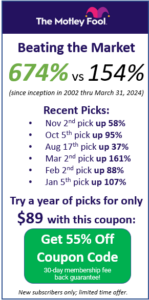
Increasing numbers of entrepreneurs like Tai Lopez and Alex Mehr are drawn to taking over existing businesses. The strategic plan envisions a rethinking of the business model.
There is a widespread misconception that founders who sell their businesses are concealing material facts from potential buyers. Traditional thinking states, ‘If the business is so great, why are you selling it?’ This naturally lends to increased scrutiny. Yet, the global economy is predicated on demand and supply, buy and sell. It is an intractable reality of the market, and it exists at every level of retail and wholesale activity.
Founders sell businesses for any number of reasons, including lifestyle changes, new ventures on the horizon, or simply to cash out at the top of their game. On the flipside, buyers are always on the hunt for bargain deals. Arguably the most important precursor for success vis-a-vis business ventures is brand-name awareness. This goes to the heart of trust, credibility, and market share.
Indeed, companies like Pier 1 Imports, Macy’s, Dressbarn, American Eagle Outfitters, Signet Jewelers, Bath & Body Works, Stein Mart, Microsoft Store, Brooks Brothers, CVS, GameStop, GNC, H&M, Lord & Taylor, Neiman Marcus, and Victoria’s Secret have announced large-scale closures of their retail operations. Businesses divest from poorly performing stores in order to shore up their cash flow, rein in expenditure, and improve profitability over the long-term.
The shuttering of tens of thousands of retail operations across the United States is fuelled by the ‘steroid induced’ Retail Apocalypse, driven by the coronavirus pandemic. Fortune.com author, Phil Wahba inked an op-ed in April 2020, ‘Coronavirus Will Harm Already Weak Retailers Long After It’s Been Contained’. In his expose, he goes to great pains to elaborate the damage faced by the retail sector vis-a-vis the coronavirus. The switch to e-commerce has accelerated in 2020, owing to the social distancing requirements, and virulence of the pathogen causing the coronavirus disease.
How Entrepreneurs Are Capitalizing Under Current Market Conditions?
At first glance, one would be remiss to postulate that profitability is possible during an exceedingly difficult period in the global economy. Like trading and investing, profits stand to be made whether markets are rising or falling. The analogy to trading is an important one, given that put options in futures markets can be profitable to traders during downswings. Under current market conditions, the reality is markedly different. Entrepreneurs who buy ailing businesses are not looking to short the future income potential of their acquisitions; they are looking to turn things around to become profitable under current market conditions.
Two serial entrepreneurs are worthy of mention: Tai Lopez and Alex Mehr. The former is a social media influencer with millions of followers across Twitter, Instagram, and Facebook et al. He’s also a property mogul, and a business tycoon. Together with former NASA scientist, Alex Mehr – who just so happens to be the co-founder of Zoosk which sold for $280 million – the pair kicked off a Florida-based investment company known as REV (Retail E-Commerce Ventures).
This disruptive retail company is making hay while the proverbial sun shines in 2020. With the Retail Apocalypse wreaking havoc on bricks and mortar operations across the US, Lopez and Mehr are turning things around for many established brand name companies. To quote Lopez, ‘… The number-1 corporate objective, when crossing the chairs, is to secure a distribution channel into the mainstream market, one with which the pragmatist customer will be comfortable.’ For Lopez and Mehr that is e-commerce.
According to Digital Commerce 360, Amazon.com’s Q2 North America revenues skyrocketed 43%. Such phenomenal growth is a testament to our times, thanks largely to the pandemic which has funneled retail activity, from land-based operations to e-commerce. According to Amazon’s financial reports, worldwide revenue growth in Q2 increased 33.5%, and virtual sales of groceries increased 300%. This is not unique to Amazon; similar trends are evident with eBay, AliBaba, and virtually all other e-commerce retail operations of existing land-based businesses. For REV, the strategy is clear: Harness the brand power of existing SMEs by transformative change [from land-based footfall traffic to e-commerce]. Identifying lucrative opportunities is the biggest challenge, but several important acquisitions have already been made.
Modell’s Sporting Goods
Modell’s Sporting Goods is an established provider of sports & activities, accessories, and footwear. With 130 years of retail experience in the sporting industry, Modell’s Sporting Goods has consistently delivered on expectations. Land-based stores are available in DC, Virginia, Delaware, Maryland, New Hampshire, Massachusetts, New York, Connecticut, Pennsylvania, and New Jersey. But the Retail Apocalypse dramatically affected the brand, leading to an important decision – a buyout by Tai Lopez and Alex Mehr.
The decision was inked on 14 August 2020, when REV paid $3.64 million to purchase Modell’s assets after the sporting goods retailer announced bankruptcy and liquidation of the chain. The reason why Tai Lopez and Alex Mehr purchased the company was clear as day: people love the brand name. A turnaround strategy from land-based operations to e-commerce has already proven to be successful.
Pier 1 Imports
Pier 1 Imports is another example of a well-known retail brand that was struggling to make ends meet in 2020. Once again, the Retail Apocalypse with a steroid-induced bolus from the coronavirus accelerated losses at land-based retailers across the country. on July 31, 2020, a $31 million purchase was finalized of Pier 1 Imports by Retail E-Commerce Ventures (REV) under the stewardship of Tai Lopez and Alex Mehr. As anticipated, Pier 1 Imports remains a well-known brand with massive e-commerce sales potential.
Dressbarn
Dressbarn is another example of an ailing land-based retail chain that shuttered all of its land-based stores in 2019. REV made the bold move to acquire the company and launch online sales through a clever combination of social media ingenuity and e-commerce. By determining where customers are, and contacting them on their terms, REV managed to turn Dressbarn around with year-on-year increases in revenue. Thanks to smart marketing, analytics, and big data, REV is able to fully assess each brand that it acquires, or intends to acquire based on a set of factors. Criteria include the quality/value of the company’s assets, customer affinity for the brand, and brand awareness.
Many other serial entrepreneurs have ventured into this territory, hoping to transform once-ailing Len-based operations into thriving e-commerce ventures. It is definitely a challenging environment in 2020, but all signs point to the runaway success of REV under its innovative leadership duo.
 Diamond Bottoms
Diamond Bottoms Dogs of the Dow: The Simple Stock Picking Strategy that Works
Dogs of the Dow: The Simple Stock Picking Strategy that Works Editing Assignments!
Editing Assignments!
